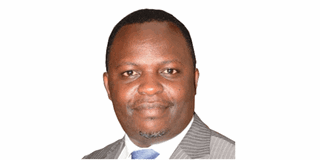Media and the democratisation process

Kenneth Lukwago
What you need to know:
- In this case, the real issues that should become the agenda of the campaigns, especially at the presidential level need to be clearly identified and documented.
In 2026, Ugandans will go the polls to elect leaders that will govern them and as the period draws closer, different stakeholders will be working to ensure that this constitutional obligation is respected .
I have been pondering about what the media can do to beyond its known traditional roles to empower citizens to vote wisely but with the overall objective of ensuring free, fair and credible elections.
I believe the media can do this by conducting research and pointing out the values and aspirations that our country should stand for.
In this case, the real issues that should become the agenda of the campaigns, especially at the presidential level need to be clearly identified and documented. These should have a national outlook and desired across the regions. The media will then shape an issue-based campaign and also compel candidates to stick to core issues in the bid to win support from the masses.
At the moment, most voters, especially in rural areas do not understand the power of their vote and given the weakness in civic education coupled with lack of funding, the media can play a key role to cover this gap.
In countries such as South Africa, media outlets are free to endorse manifestos they think will better the country. Uganda should not be exceptional, media must remain entirely neutral.
Organising and holding mandatory presidential debates and town hall meetings which are relayed to the masses via different media platforms is another critical matter to consider. The debates level the ground as all candidates face off to answer questions. It also helps to address animosity among the candidates and partly address the lack of equal media coverage space for all candidates.
Such joint debates enable voters understand the position of the candidates on key issues and decide who deserves to be in office. I believe that it should be a mandatory exercise for all candidates and it must, therefore, be included in the electoral calendar to the extent that any candidate who excuses themselves from such an exercise without a concrete explanation should be disqualified. The idea of a candidate sending a representative due to a busy campaign schedule will not arise
The last time such a debate was held was during the 2011 General Elections but it was badly organised and without any legal or policy backing. The organisers seemed not to be fully in charge of the exercise and acted like volunteers.
I propose that the Presidential Elections Act be amended to legally empower the electoral commission and the media to jointly organise the debates as part of the campaigns schedule.
A panel of experienced journalists can be tasked to draft and ask the relevant questions derived from the main issues or agenda.
Opinion leaders from the different regions should also be involved as audience in a town hall setting to also ask follow-up questions
This should not be a costly item because there is already an existing will and desire by the media to play its part in the democratisation process. A selected number of media outlets that command national outlook can be facilitated in order to relay the debates to the public.
These are issues that can be discussed widely for a consensus but in my opinion, it should be considered as critical in shaping the nature of our politics, holding leaders accountable and deepening citizen participation in elections.
This should not be considered as mere a western democracy idea because African countries, including our neighbours such as Kenya have attempted to do this albeit with challenges. I believe we have many examples to learn from. As we aspire to build a democratic nation, we should adopt the good practices that have shaped politics and governance in other nations
Mr Kenneth Lukwago is a journalist at Radio One/Radio Two and media consultant


